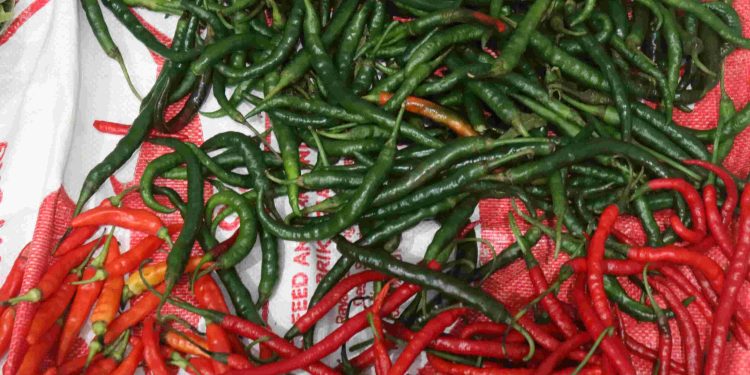Healthy and Simple Meal Recipes
What if I told you that almost everything we know about convenient cooking is flawed? In a world where fast food often reigns supreme, the idea of healthy meals being difficult, time-consuming, and expensive has become a widespread misconception. But this perspective isn’t just outdated—it’s holding us back. In fact, simple, nutritious meals can be the cornerstone of a balanced, thriving lifestyle, and creating them isn’t as unattainable as we’ve been led to believe.
Years ago, I found myself juggling the relentless demands of a corporate job. Working 12-hour days, sleep-deprived and surviving on vending machine snacks, my physical and mental health hit rock bottom. I told myself there wasn’t time to cook, especially when packaged foods and takeout seemed more convenient. But here’s the catch: my convenience was actually costing me more—energy, focus, and even happiness. And I wasn’t alone. Statistics show that over 60% of Americans struggle to balance nutrition and lifestyle in a fast-paced world. This problem is systemic, but it also encourages an incredible opportunity to rethink how we eat.

Breaking Free From the Traditional Mindset
The conventional wisdom around healthy eating often involves guilt, restrictions, and unsustainable habits. We’re inundated with meal plans, fad diets, and so-called revolutionary products that promise results but rarely address the root problem: our relationship with food. Instead of focusing solely on calories and rules, what if we made cooking an act of mindfulness and self-care?
Let’s borrow a page from technology industries and think in terms of “optimization.” Streamlining the way we prepare food—using minimal ingredients and maximizing flavor—brings balance to both our health and our overloaded schedules. This approach isn’t just about eating; it’s about shifting our mindset to prioritize quality over quantity, and nourishment over novelty. Imagine applying the design thinking principles of Apple or Tesla to how we plan our weekly meals.
The Future of Food Preparation
As the science of nutrition continues to deepen, the intersection of technology and home cooking grows more fascinating. Apps and kitchen gadgets, like meal-planning software or smart cooking devices, are disrupting traditional methods. These tools empower us to turn even the simplest ingredients into something gourmet. Looking ahead, one might predict a rise in collaborative virtual cooking spaces—online hubs where individuals from around the globe not only swap recipes but also learn cooking techniques in real-time with AI guidance.
On a broader scale, the rise of urban farming and local sourcing is shaping how we think about food supply chains. Longer-term trends point toward regenerative agriculture and lab-grown proteins becoming central to how sustainable meals are built. The question is no longer “What will we eat tomorrow?” but “How do we create food systems that align with both our health and the planet?” In that future landscape, healthy meals aren’t just accessible—they’re essential.
Five Practical Steps to Redefine Your Meals
Here’s where you can start:
-
Batch Prep:
Dedicate one weekend afternoon to bulk cooking versatile ingredients like roasted vegetables, quinoa, or grilled chicken for use throughout the week. This technique minimizes decision fatigue and ensures balanced options. -
Invest in Spices:
A dash of smoked paprika or a sprinkle of curry powder can transform bland staples into exciting dishes. Think of your spice rack as an artist’s palette. -
Adopt One-Pan Dinners:
Simplifying cooking methods doesn’t mean sacrificing quality. Try one-pan roasted meals with a mix of lean proteins and seasonal produce. -
Leverage Technology:
Use recipe apps and subscription services for meal inspiration and grocery delivery, saving hours of planning and shopping. -
Focus on Sustainability:
Integrate more plant-based options and source locally to reduce your carbon footprint and support your health simultaneously.
Nourishment as a Lifelong Skill
One of the most understated virtues of cooking is its potential to foster continuous learning. Every recipe you try, every ingredient you experiment with, becomes a stepping stone toward deeper culinary and cultural appreciation. Philosopher Michel de Montaigne once wrote, “The greatest thing in the world is to know how to belong to oneself.” Cooking isn’t just about food; it’s a form of self-reliance and discovery, a daily act of claiming ownership of what fuels you.
To build this practice, start small. Don’t aim for perfection; aim for presence. Whether it’s experimenting with a new recipe or exploring a familiar family dish, immerse yourself in the process. Feel the texture of fresh vegetables, notice the aroma of spices heating in oil, and savor the pride that comes from creating something with your own hands.
In this way, healthy and simple meal recipes transcend the plate; they ripple outward, shaping your productivity, energy levels, and even relationships. The ripple effect is there for you to embrace—one meal at a time.














Discussion about this post